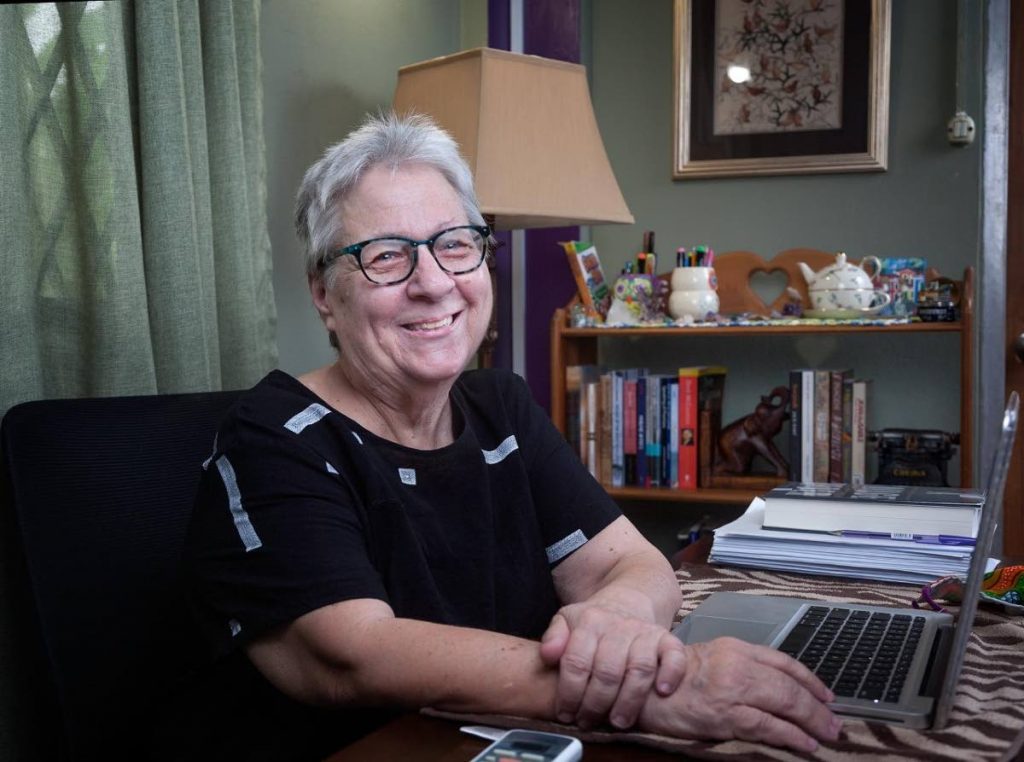Fixing prisons, justice system

OUTRAGE alone is never enough. Every time someone commits a crime in this country, I become more committed to speaking out about prison reform and the tangled mess that is our justice system, clogged with delays so that men can pile up bailable offences and still be outside prison walls or people charged with capital charges – murder, rape and kidnapping – can wait over a decade for their trials to worm their way through the court system.
The Government must address the shortage of courtrooms necessary to meet the escalating crime problem and those judges who constantly postpone cases. Why are they not held accountable for their inaction, which sparks this whole mess?
Inside or out of prison men hone their skills as criminals without the proper educational programmes to change their lives either in our schools or our prisons. We like to point fingers at negligent parents, but if poor people fighting to survive have not been educated, accepted by society and prepared to be positive citizens of this country, it does little good to expect them to know how to be the type of parents who can nurture hope and instill values in their children.
So the problem keeps getting pushed down the line to schools that make children with learning issues feel like failures and then to our prisons where, I dare say, much of the mentality still leans towards locking inmates away rather than educating and rehabilitating them. A more relevant education for all students with a strong vocational lean is more important than ever.
Academic programmes that stress communication skills, skill-based programmes like the certified barbering classes, PVC furniture-making and decorative tiling classes that have been supported by the Ministry of Community Development and funded through grants by the US Embassy provide inmates with the skills to create their own jobs when they come out of prison, but we need more of these programmes. We have a dire need for rehabilitation programmes. We do not have any rehabilitation programme for sexual offenders.
We must be mindful that if we rob anyone of hope and skills necessary to face society, anger and frustration fester and we all suffer.
In prison, I have witnessed young men turn their lives around and become the leaders I believe this society needs when they participate in academic and vocational programmes.
Covid19 restrictions aside, academic programmes are up to the whims and fancies of a steady stream of prison officials who constantly seem to play musical chairs. At a supervisory level, administrators keep shifting. Each commissioner brings his own vision and his own beliefs to the system so that civilians like me and NGOs like my Wishing for Wings Foundation face unnecessary obstacles that wouldn’t be hurdles if there was a prison system with a robust strategic plan to make seamless transitions from one prison commissioner to the next.
Prison programmes struggle with lack of funding. Some prison programme leaders are more creative and passionate visionaries than others. I often migrate from prison to prison to follow the passionate ones. There have been occasions when I had to sit and twiddle my thumbs waiting for certain people in high places to retire because the chances of having any of my initiatives heard were close to zero.
I know this need not be this way because I also worked under Dane Clarke, who served four brief stints as acting prison commissioner, each one no longer than two to four months, yet my programmes never suffered while he was in charge. He shared my beliefs in the successful inter-station debates and realised they were chances for inmates to articulate their feelings.
Other officers never recognised that debates increased inmates’ communication skills and provided the public with information about how inmates feel about issues dividing us. We cannot fix a problem if we don’t understand the problem, and we cannot understand the problem if we don’t listen to the wants and needs of everyone in this society. Socio-economic factors divide us far too much.
The problems are clear and in many cases simple. Build more courts, appoint more judges, create a workable strategic plan to structure the prison system so that it is system-based rather than individual. Prison and public service promotions in general must be based on merit rather than seniority. Prisons should partner with NGOs even more to offer more academic, skill-based and rehabilitation programmes.
We need to get cracking.

Comments
"Fixing prisons, justice system"